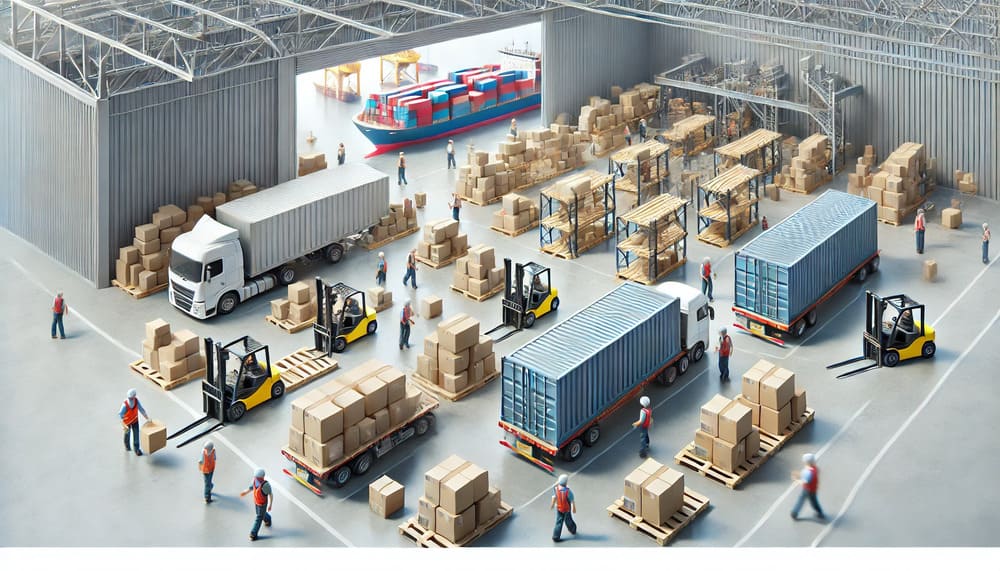For Indonesian Citizens
Indonesian citizens exporting goods must obtain the following key documents:
- Business Identification Number (NIB): Every exporter, whether individual or corporate, must register with the Indonesian government’s Online Single Submission (OSS) system to obtain a Business Identification Number (NIB). This registration officially permits you to engage in export activities.
- Exporter Registration with the Directorate General of Foreign Trade (DJP): All exporters must be registered with the Ministry of Trade’s Directorate General of Foreign Trade (DJP). This step ensures compliance with trade regulations and grants permission to engage in exporting.
For Foreign Nationals in Indonesia
Foreign nationals who wish to export from Indonesia must either:
- Establish a Foreign Investment Company (PT PMA): If you’re a foreigner, setting up a Foreign Investment Company (PT PMA) is necessary to engage in export activities legally. The PT PMA allows you to conduct commercial activities, including export, under Indonesian law. You will also need to register with the OSS system to obtain an NIB.
- Work with an Indonesian Export Partner: Foreign nationals who do not wish to set up a PT PMA can partner with an Indonesian company that holds an export license. This way, the Indonesian partner handles the export logistics and documentation.
Key Documents for Exporters:
- Invoice: This document provides detailed information about the transaction between the buyer and seller, including the price, quantity, and description of the goods.Packing List: The packing list outlines the specific contents of the shipment, including product weights, dimensions, and quantities. This document is required for customs clearance.
- Bill of Lading (B/L) or Airway Bill (AWB): A bill of lading is a contract between the shipper and the carrier, detailing the terms of shipment. It serves as proof that the goods have been received for transport.
- Certificate of Origin (COO): This document certifies that the goods being exported originate from Indonesia. Some countries offer preferential treatment for Indonesian goods under free trade agreements (FTAs), which can reduce import duties.
- Export Declaration (PEB): Indonesian exporters must file an Export Declaration (PEB) with customs, which details the nature of the goods, the destination, and their value.Customs Clearance Documents: Customs clearance is necessary for every export. Documents such as the Export Declaration, Bill of Lading, and Certificate of Origin must be submitted to customs to facilitate the legal movement of goods out of the country.
Additionally, product-specific documents may be required, depending on what you’re exporting:
- Phytosanitary Certificate: For agricultural products, a phytosanitary certificate from the Ministry of Agriculture certifies that the goods meet safety and quality standards.
- Halal Certificate: If you’re exporting food or consumables to countries with strict halal standards, a halal certificate may be required to ensure the product meets Islamic dietary requirements.
- Conduct Market Research
Analyze global demand for your product category. For instance, if you’re exporting furniture, target countries with high demand for home furnishings, such as the United States, Europe, or Australia. Researching market trends, consumer preferences, and local competition will help you choose the right markets to enter. - Understand Local Regulations
Each country has its own import regulations, standards, and customs procedures. Ensure you are familiar with your target market’s regulations for importing goods from Indonesia. This includes understanding labeling requirements, packaging standards, and any restrictions on specific product categories. - Establish Relationships with Buyers
Building relationships with local distributors or importers can significantly simplify the export process. Attend trade fairs, participate in virtual business matchmaking, or collaborate with trade promotion agencies to connect with potential buyers.
- Maintain Quality Control
Thorough quality control is vital to avoid shipment rejections and protect your brand’s reputation. Perform inspections and quality checks before exporting, ensuring your goods meet international standards and your buyer’s specifications. - Secure Packaging and Proper Labeling
Packaging must be durable and secure enough to handle long-distance transportation. Ensure your products are packaged to protect against damage from moisture, temperature changes, and rough handling. Also, ensure your labeling complies with the regulations of the importing country, including ingredients, production dates, and safety instructions. - Meet Certification Requirements
Certain products may require international certifications before export, such as ISO, HACCP, or organic certification for agricultural products. Ensuring that your products meet these certifications will simplify the customs process and boost buyer confidence.
- Sea Freight: Ideal for large or bulky shipments, sea freight is cost-effective but slower, taking several weeks to reach international destinations.
- Air Freight: Best for smaller or urgent shipments, air freight ensures quicker delivery, though it comes with higher shipping costs. This method is useful for perishable goods or high-value items.
Working with a reliable freight forwarder can simplify the logistics and documentation process, ensuring your goods are shipped efficiently.
- Create a Professional Website: Your website should highlight your products, certifications, and export capabilities. Optimize it with relevant keywords to improve search engine visibility.
- Leverage Social Media: Use platforms like Instagram, Facebook, and LinkedIn to promote your products, engage with potential buyers, and build an international following.
- Attend Virtual Trade Shows: Virtual trade shows and online marketplaces are excellent opportunities to connect with potential buyers and showcase your products to a global audience.







